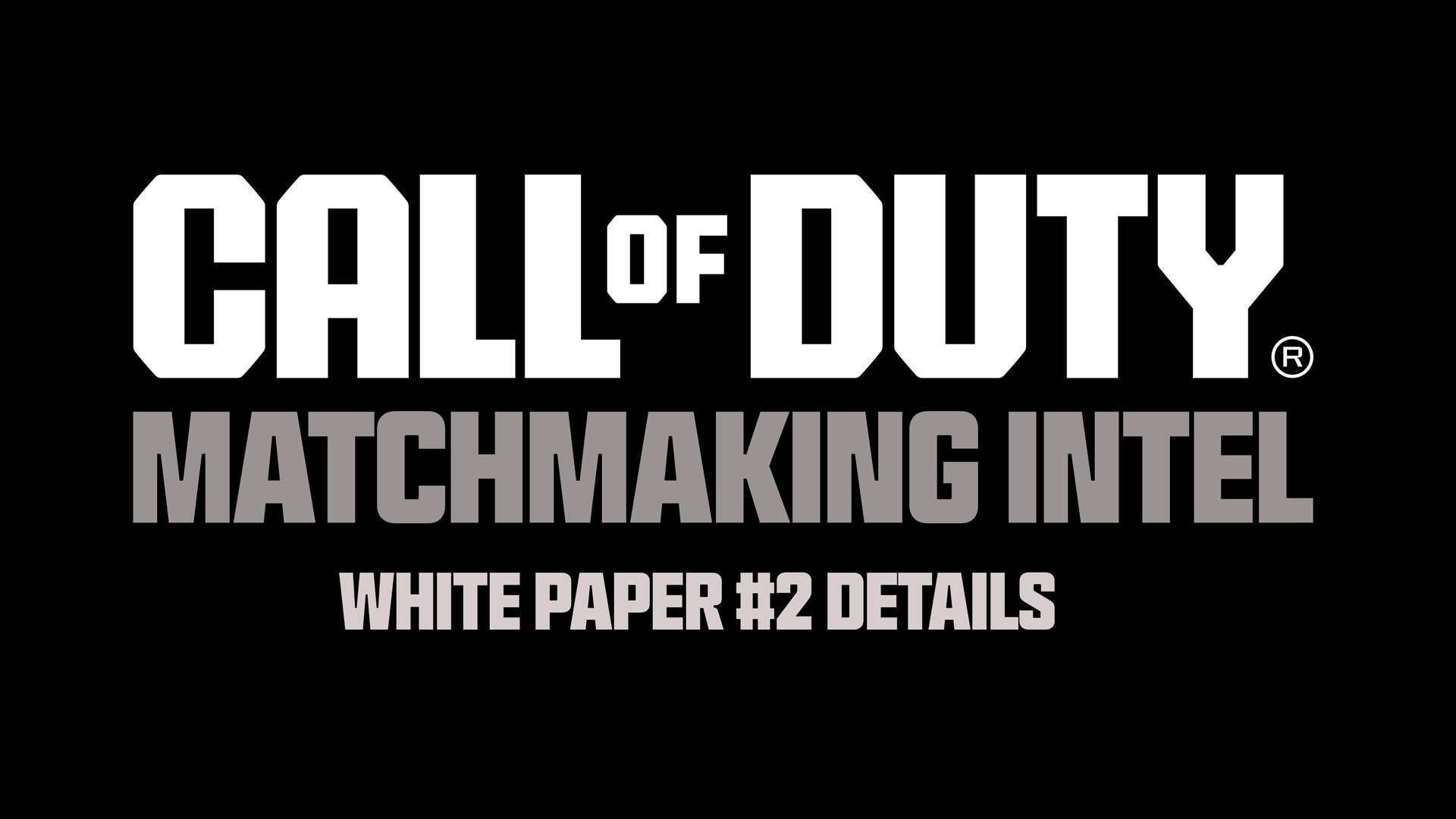Following the insights shared in the first installment of Call of Duty’s matchmaking series, which explored the significance of connection quality and matchmaking speed, the development team has now released the second white paper. This new entry focuses on the influence of player skill in multiplayer matchmaking and aims to clarify misconceptions about how matches are formed.
While skill is indeed a component in matchmaking, it’s not the central factor. The system is built to prioritize fairness and player retention, with the ultimate goal of creating an engaging and enjoyable experience for everyone. A major emphasis is placed on team balance, as unbalanced matches often lead to players leaving mid-game—a trend that can harm the overall player pool. A balanced team setup not only makes for better gameplay but also helps prevent repetitive, lopsided matches.
The influence of skill-based matchmaking in the franchise dates back to Call of Duty 4: Modern Warfare. Over the years, the system has evolved, informed by constant testing and analysis. Recent studies have looked closely at the impact of adjusting how much weight skill carries in matchmaking decisions.
For instance, a notable test during Modern Warfare III involved relaxing skill parameters for a subset of players across North America. Compared to a control group, those placed in more varied skill lobbies were significantly more likely to exit matches early. Furthermore, these players did not return to the game more frequently than their counterparts in traditional matchmaking environments. This outcome highlighted a broader trend: players, especially those with lower or moderate skill levels, were discouraged from playing when consistently placed in mismatched lobbies. Blowout matches—those with extremely uneven scores—became more common, further amplifying the issue.
A reverse test, tightening the skill range between players in a lobby, saw different outcomes. Quit rates dropped among 90% of participants, and stats like kills per minute and score per minute improved for less experienced players. However, the most skilled players saw a decline in their experience, suggesting that an overly narrow skill range may hinder top-tier players. This reveals the complexity of designing a matchmaking system that serves a wide range of player abilities.
The current matchmaking system aims to strike a thoughtful balance. It ensures players can engage with the game in a way that feels rewarding—whether they’re striving for team victories or personal milestones. Regular blowouts are actively discouraged, as they tend to prompt frustration and disengagement. Ultimately, the goal is to ensure every player has the opportunity to participate meaningfully, regardless of their experience level.
For high-skill players, loosening skill constraints might seem like a short-term win, creating matches where they dominate easily. However, this causes less experienced players to exit the ecosystem, which paradoxically leads to more difficult matchmaking for elite players, as the player pool becomes increasingly top-heavy. This phenomenon is already observable in older Call of Duty titles, where the remaining players are predominantly high-skill veterans, making balanced matches harder to form.
Matchmaking always depends on who is online and actively searching for a match. Even the best-designed system can only create matches from the pool of available players. The development team continues refining its systems with the goal of long-term player satisfaction across all skill levels.
This white paper also addresses common questions about how skill is factored in across various game modes. One frequent misconception is that consistently playing against more skilled opponents will automatically make lower-skill players better. However, testing shows that being outmatched regularly leads more often to frustration and eventual disengagement than to meaningful skill development.
Call of Duty separates skill rankings by mode because a player’s strengths in one area may not translate to another. This division allows for competitive focus in Ranked Play without affecting experiences in casual playlists, where players might want to experiment with new weapons or play more casually.
The reason skill is still considered in unranked playlists is simple: many players either haven’t qualified for Ranked Play or choose not to participate in it. These players still deserve matches where they can contribute, improve, and enjoy the game. Removing skill consideration entirely from core matchmaking would likely discourage participation from most casual players, and the result would be a high-skill-only environment, reducing match diversity.
While the possibility of a skill-free playlist has been explored, historical data suggests it wouldn’t serve the broader community well. Such a mode would likely end up populated almost exclusively by the most experienced and competitive players, limiting its appeal and viability.
Call of Duty’s commitment is clear: continue evolving matchmaking to provide a system that serves the widest possible community. A healthy, balanced population benefits everyone—from newcomers to seasoned veterans. For players eager to dive deeper into the specifics of skill’s role in matchmaking, the full white paper, Matchmaking Series: The Role of Skill in Matchmaking, is available now. A future installment, focusing on Ranked Play, is expected to release later this summer.










